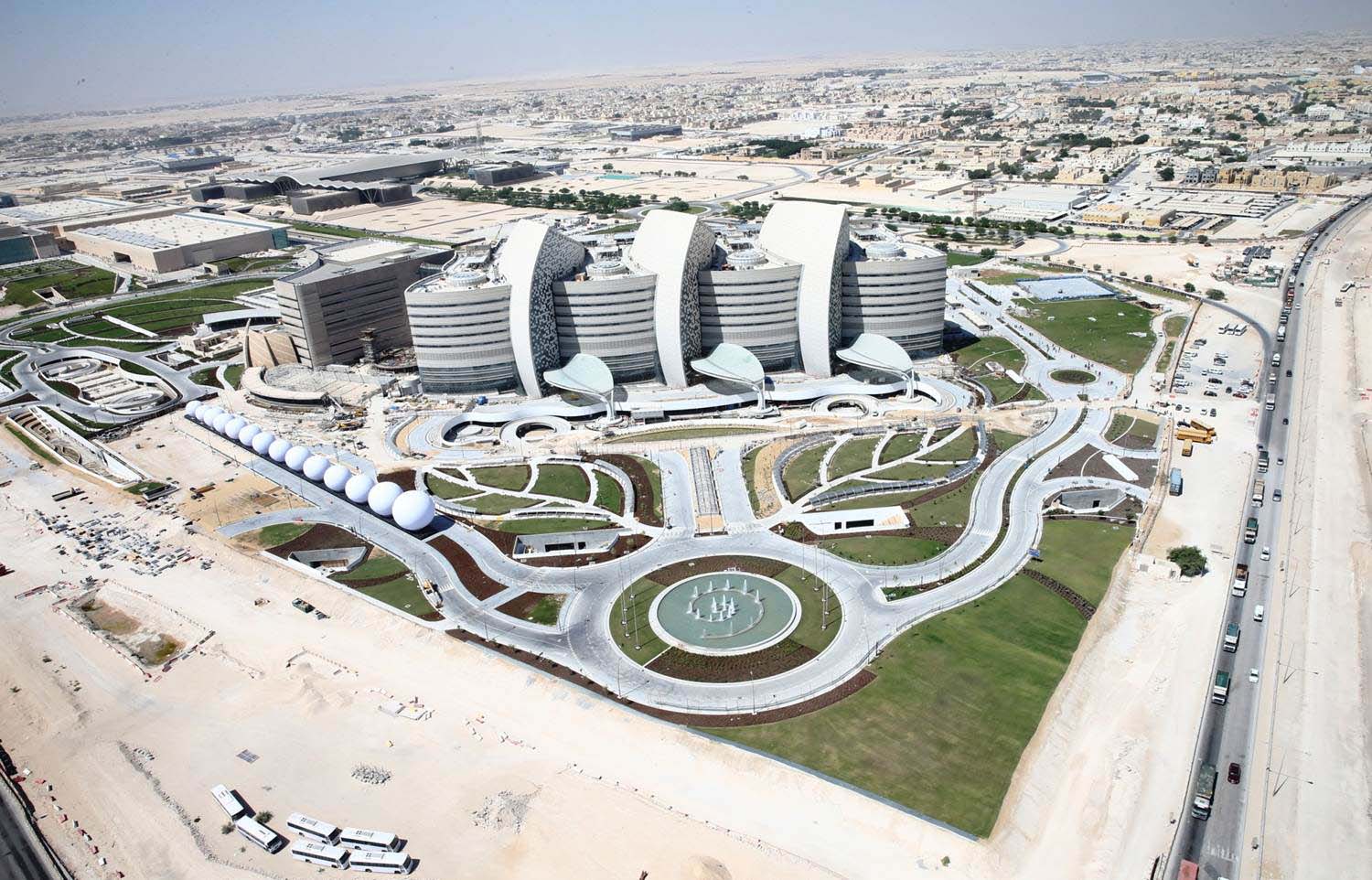
With reporting from Chantelle D’mello and Elysia Windrum
Updated at 9pm with a statement from Qatar Foundation
Hundreds of laborers, engineers, designers and others working at the under-construction Sidra Medical and Research Center were told to leave the site this morning after the project’s main contractors were sacked, multiple sources have told Doha News.
A designer working as a subcontractor there said that he and his colleagues had been asked to clear out their desks and collect their belongings around 8am today. Security guards showed up to escort people from their offices and the construction site, he added.
“It happened so suddenly we were unable to do anything. Even the managers didn’t know anything about this. This happened at the top level – the very top level.”
Sidra construction was being managed by OHL International and Contrack International, which had signed on in 2008 as a joint venture to build the hospital.
Both companies declined to comment to Doha News about what happened, referring all questions to the hospital and Qatar Foundation, which is funding Sidra with an endowment of $7.9 billion.
Sidra has not yet responded to requests for comment. However, speaking to Doha News outside of the hospital today, a QF security representative said that the hospital site was closed until after Eid holidays because it was changing contractors.
And at nearly 9pm tonight, QF sent this press statement:
“Sidra Medical and Research Center (Sidra) is a crucial project for the people of Qatar. Sidra is committed to bringing state-of-the-art patient care to Qatar, the Gulf region and the world.
On 22 July 2014, Qatar Foundation for Education, Science and Community Development terminated the contract for design and construction of the Sidra Facilities in Doha, Qatar, which was awarded in 2008 to the OHL Internacional / Contrack (Cyprus) Ltd. Joint Venture.
Sidra has three essential missions: world-class patient care, medical education and biomedical research. When complete, the Sidra facilities will set new standards in patient care for women and children in Qatar and internationally.”
Delays
According to an administrative employee at Sidra, OHL and Contrack (and a slew of subcontracted companies) were fired because they have not delivered the hospital on time.

Sidra, billed as “an ultramodern academic medical center” dedicated to the care of women and children, was originally supposed to open in 2011, but has repeatedly postponed this date.
The most recently floated timeline was 2015, but as of May, Sidra could no longer provide a solid opening date because work on the building had not been completed.
In a statement to Doha News at the time, the hospital said:
“Sidra’s opening date depends largely on building handover and the completion of construction. Patients’ outcomes are the highest priority, and rigorous processes are underway to ensure that Sidra operates to the highest standards and opens only when the building is ready for safe patient care.”
It is not clear who will replace the contractors following the Eid holiday.
Employees working for OHL, Contrack and subcontracted companies are also expressing confusion about what to do now.
Some construction workers leaving Sidra this afternoon told Doha News that their foreman had given them the day off, but they thought they were supposed to return to work tomorrow.
And the designer said he has yet to receive any official word from his employer about how to proceed.
“We just have to keep on hold, I don’t know how many days.”
His friend added that half of the staff had already left for vacation: “When they come back, they don’t have a job, a place to work, a company to work. Everything is ruined.”
Thoughts?







